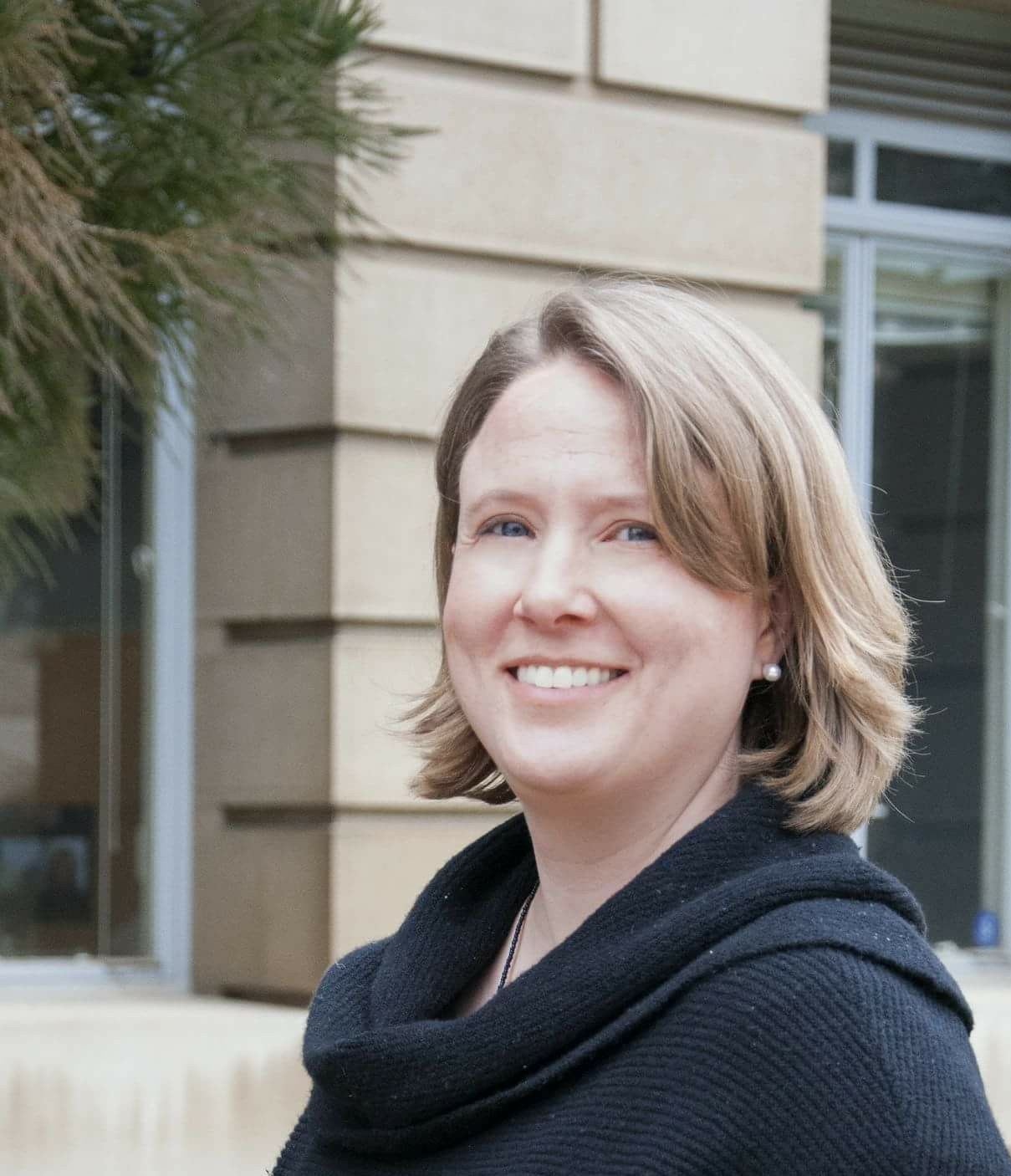Challey Spotlight: Dr. Elizabeth Carlson
Assistant Professor of Political Science
Elizabeth Carlson is an assistant professor of political science in the NDSU Department of Political Science and Public Policy and a scholar of the Challey Institute for Global Innovation and Growth. She specializes in political behavior, public opinion and survey methods, lab and field experimentation, and the political economy of development in Africa. She teaches undergraduate courses on global policy issues, politics in developing countries, and governance and government accountability, and she teaches graduate courses in the Master of Public Policy program. She is the founding organizer of Data-Driven Development in Africa and occasional host of Behavioral Models of Politics.
You joined the Challey Institute in the fall of 2020. Since then, the Challey Institute team and programs have grown considerably. From the faculty perspective, what have you observed and enjoyed?
Particularly this year, I think the talks have been really good. I like the way the Human Progress and Flourishing Workshop is setup, with the addition of the research talks and pairing the outside speaker with a faculty member. There are a lot of students now, and they seem to follow along and really enjoy hearing from the faculty. A lot of my students participate in the programs either through the reading groups or the Market Values class. They all have really good things to say about it.
You recently attended the Markets & Society Conference hosted by the Mercatus Center, where you were part of on an interdisciplinary panel discussing civil discourse and reducing political polarization. Tell us about your research short-circuiting partisan bias.
At the conference, I presented a design for an experiment to use people’s partisan identity against their own bias. There’s a huge problem of partisan bias on both sides that leads people to believe wrong things about easily verifiable facts. For example, if their party is in charge, people will think the inflation rate is lower than it is; if the other party is in charge, they will think the inflation rate is higher. That makes it very difficult for people to agree or compromise. Now, for my study, we want to convince people that being a Democrat or a Republican means being in the party of evidence. We will remind participants that taking in evidence is part of their social identity, and then see if that trigger makes people more willing to accept factual information that goes against their bias.
You also conduct a lot of research focused on development in Africa. What are you currently working on internationally?
To some extent, the questions I am asking in Africa are the same as my U.S. project. I want to understand why people make certain decisions to support politicians or policies that don’t seem to be in their best interest. Of course, people aren’t unintelligent or irrational. There is some reason why they’re doing what they are doing.
In Africa, I’m interested in why people tolerate corruption and whether democracy is actually helping. And the answer is yes. We were able to use some better data and figure out that as countries become more politically open (democracy), poverty is reduced. It turns out democracy has a quick and measurable impact on people’s employment, which is then then increasing their ability to escape poverty.
You teach undergraduate students, as well as classes in NDSU’s new Master of Public Policy program. What philosophy do you bring to the classroom?
One thing I hammer into all of my classes, regardless of the content, is to follow the evidence. The evidence comes first, and then you form your conclusions. I push my students to be able to tell me what the evidence says. Sometimes what we’ve learned isn’t going to support the way we thought the world worked, and so we have to update our thinking. To some extent, I’m lucky, because these students are at an age where they are forming their political identities. They are transitioning from the politics of their parents to their own beliefs, and most of them are really good about taking in evidence, accepting it, and changing their minds if they have to.
How has philanthropy supported your work as a faculty member?
For one, the Challey Institute is funding the study that I just discussed at the Mercatus Center. There is a gap in how research projects are funded. Normally, you can apply to your university for $500 or $1,000, but it’s usually too little to collect original data. Then there is the NSF and USAID, who usually take projects that are at least $50,000 or $100,000, up to almost $1 million. It can be very hard to find funding for a good study between $1,000 and $10,000. Either you end up cutting corners to make it cheaper, or you balloon out to apply for a larger grant. In this case, funding from the Challey Institute was exactly the right size to fund this project. I don’t think the research would be going forward without philanthropy through the Challey Institute.



